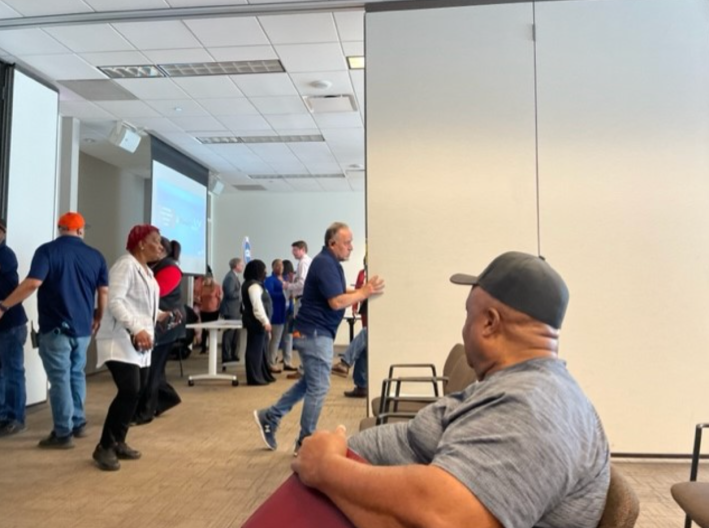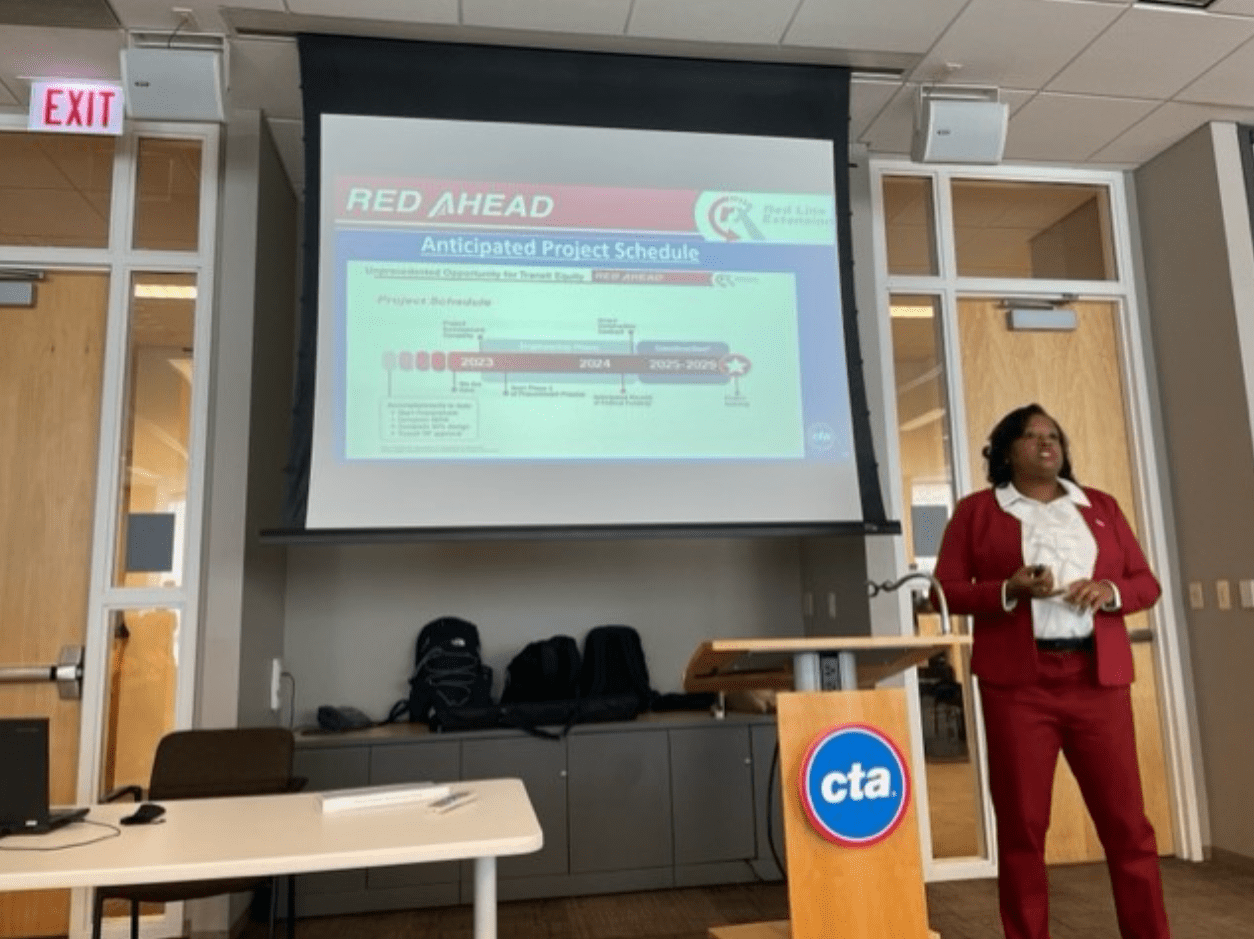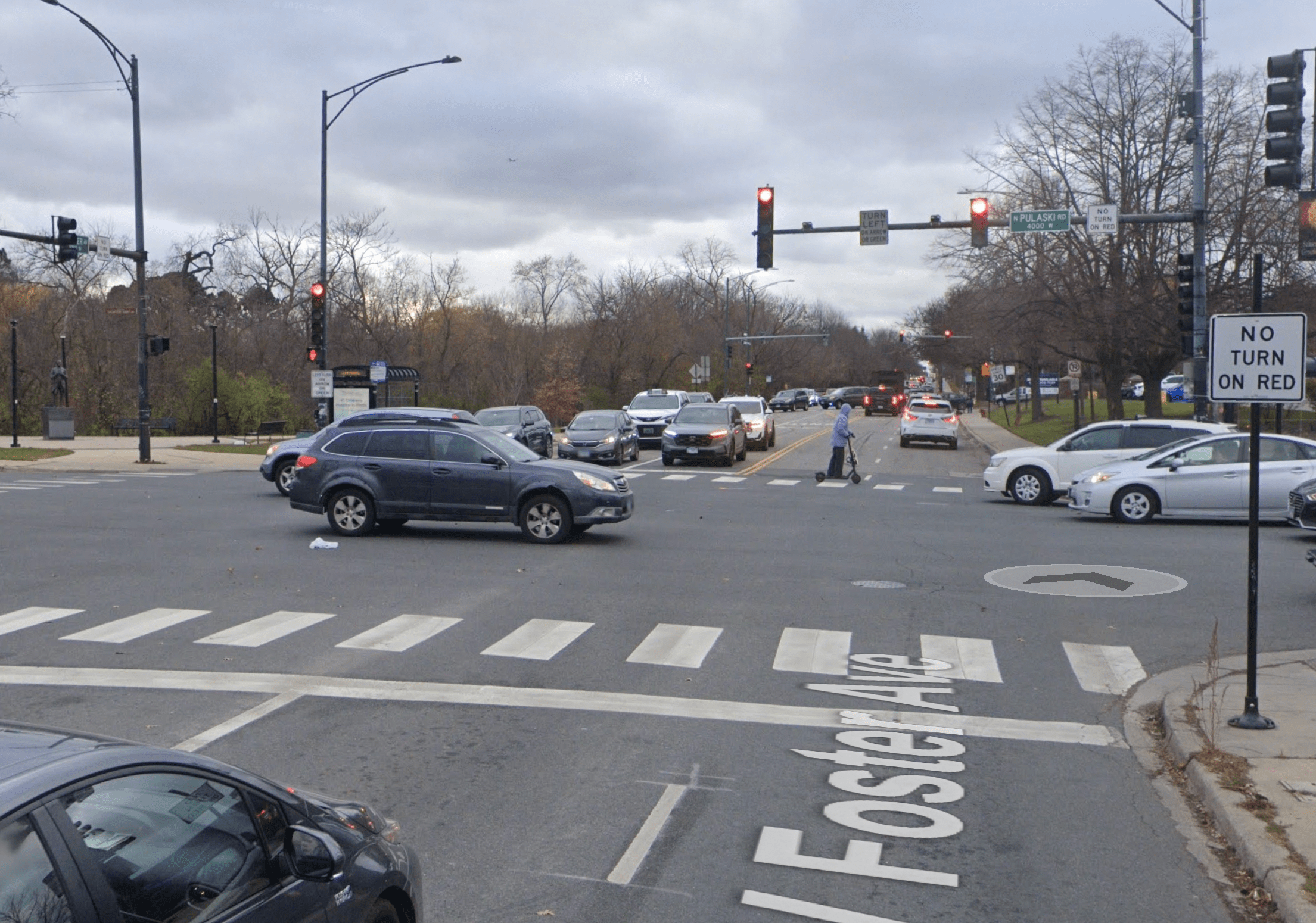On Thursday, disadvantaged business enterprises attended a meeting hosted by the Chicago Transit Authority to learn more about the Red Line Extension and the subcontracting opportunities available. The event took place at the CTA’s West Loop headquarters.
“I will note that CTA only operates a disadvantaged business enterprise or DBEs program, and we access DBE goals based on the size, scope, and complexity of a project and DBEs to perform those specific scopes,” said Juan Pablo Prieto, director of diversity programs at CTA. “We are still reviewing the scope of work for the RLE design bill contract to finalize the DBE goal, but I can share that as we did with our current mega project, RPM, and other design bill projects, we will be splitting the goal between design and construction. We implemented split goals based on the feedback we received from the professional services DBE community, and it’s helped create more opportunities for more firms.”
The proposed $3.6 billion RLE project would extend the Red Red Line from its current 95th Street terminus by 5.6 miles to 130th Street. There’ll be four new train stations at 103rd Street, 111th Street, Michigan Avenue, and 130th Street. There would also be a railcar storage yard and maintenance facility at 120th Street. Each station would have multimodal connections (for example, bus, bike, and pedestrian), plus parking lots for people who drive to catch the train.
“We say here at CTA that we are more than just getting people from point A to point B,” said chief operating officer said Veronica Alanis, “CTA connects people, jobs, and communities. Under the leadership of president [Dorval] Carter, it has been instilled across our management team that with every decision we make, from service delivery to capital projects, equity and inclusion must be a factor. This, in return, can have a positive effect on economic development, job creation, and access to better housing and employment within the communities we serve. There is no better example of this vision than the transformation redline extension.”

Around the last quarter of 2020, RLE entered into its project development phase, said TaNeshea Marshall, the project’s vice president who will oversee the design and construction. She stated that the CTA hopes that in the next few weeks they’ll enter the project’s engineering phase. Once they do so, they’ll be able to bring in designers and contractors to complete the project. The construction phase of the project is slated to start in the last quarter of 2025
The CTA has identified three potential bidders for the construction project: FH Paschen, Ragnar Benson, Milhouse and BOWA Joint Venture; Kiewit Infrastructure; and Walsh VINCI Transit Community Partners. After the initial presentation ended, the DBEs in the audience were broken up into three groups where the bidders were able to converse with them, explaining who they were and allowing the small business owners to ask any questions they might have.
“Most of you know and have once again heard with our projects, what matters is not only what gets built but how it gets built,” said Tom McKone, the CTA’s chief administrative officer.
“That’s why we’re here today, to maximize opportunities for small businesses and DBEs on this project. When we talk about DBEs and small business participation, we’re not just talking about a number. It’s a commitment to support and partner and develop the business that make up our communities and build from that floor.”
After each group was allowed to meet with all of the bidders, the audience members spent the remainder of the gathering networking. To participate in the RLE project, the small business had to be DBE certified, and if they were not already, they were advised to check in about certification with the CTA’s Diversity Programs program, which had a table at the CTA headquarters.





